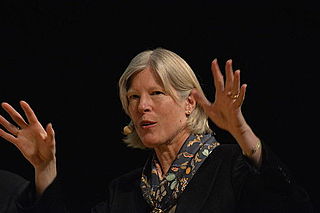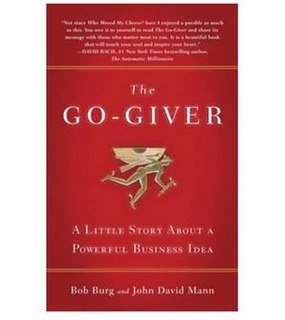A Quote by Cynthia Kenyon
With worms you can just change genes at random and see if you can find a mutant that does what you want it to do.
Related Quotes
Epigenetics doesn't change the genetic code, it changes how that's read. Perfectly normal genes can result in cancer or death. Vice-versa, in the right environment, mutant genes won't be expressed. Genes are equivalent to blueprints; epigenetics is the contractor. They change the assembly, the structure.
I agree with O'Toole that custom and comfort are impediments to change. However, it is important to recognize that resistance to change is logical as well. The new "change masters" literature seems to take change as the norm. It isn't. Humans naturally see change as risky because it is risky, just as mutations in genes are mostly destructive. You would not want to go to work were everything changed every week! The phone system, the office assignments, who reports to who, and the whole set of job expectations.
Cheetah genes cooperate with cheetah genes but not with camel genes, and vice versa. This is not because cheetah genes, even in the most poetic sense, see any virtue in the preservation of the cheetah species. They are not working to save the cheetah from extinction like some molecular World Wildlife Fund.
It's a very complex network of genes making products which go into the nucleus and turn on other genes. And, in fact, you find a continuing network of processes going on in a very complex way by which genes are subject to these continual adjustments, as you might say - the computer programmer deciding which genes ultimately will work.
Individuals are not stable things, they are fleeting. Chromosomes too are shuffled into oblivion, like hands of cards soon after they are dealt. But the cards themselves survive the shuffling. The cards are the genes. The genes are not destroyed by crossing-over, they merely change partners and march on. Of course they march on. That is their business. They are the replicators and we are their survival machines. When we have served our purpose we are cast aside. But genes are denizens of geological time: genes are forever.
I know if I persist it will pay back in dividends and it always does. What starts to happen is like exercise, the pain goes away. It starts to get easier and the weight starts to get lighter and people start to notice a difference in you and you start to notice a difference in yourself. You find your ability to make decisions is easier; you find you are inspired more often. You find your success increases. You find that your random moments when you're in the flow are no longer random and you can control them. Other people notice the difference.
An Internet meme is a hijacking of the original idea. Instead of mutating by random change and spreading by a form of Darwinian selection, Internet memes are altered deliberately by human creativity. There is no attempt at accuracy of copying, as with genes - and as with memes in their original version.
When you're coming into a company and, you know, have to do a transformation, what you really want to do is look at the company and say, 'Okay, here are the parts that the company does well. How do we get those genes to hyper-express? The genes that are getting in the way, how do you turn those off?'
Complex organisms cannot be construed as the sum of their genes, nor do genes alone build particular items of anatomy or behavior by themselves. Most genes influence several aspects of anatomy and behavior as they operate through complex interactions with other genes and their products, and with environmental factors both within and outside the developing organism. We fall into a deep error, not just a harmful oversimplification, when we speak of genes "for" particular items of anatomy or behavior.
































